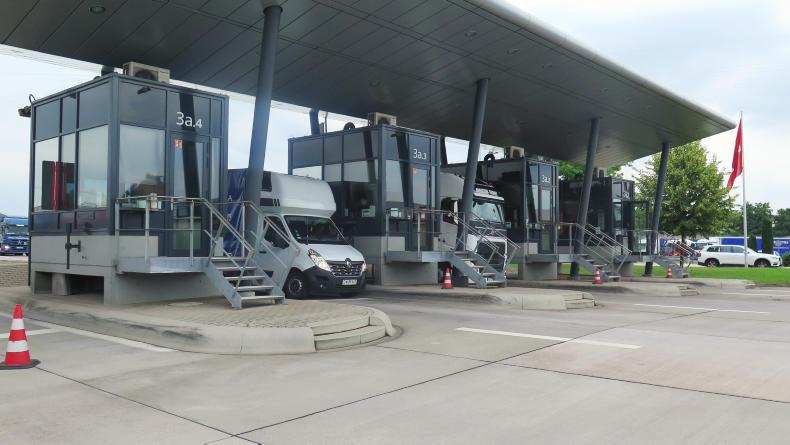With the UK now in the final month of its EU membership, the focus turns to the future trading relationship that will be the basis for long-term trade between the EU27 and the UK.
Nothing will change immediately as the UK enters a transition phase during which the future trading relationship will be negotiated. This is scheduled to conclude at the end of 2020 and though there is a transition option for up to two years, the UK has indicated that it won’t be requesting this.
Deal with US

The big ambition for the UK Government is to quickly conclude a free-trade agreement with the US. This is presented as the big political win from Brexit and has therefore as great, if not greater, priority as the negotiation with the EU.
This has to be of concern to Irish farmers as any deal between the UK and US will almost certainly be based on the UK accepting US production standards for agriculture as opposed to EU standards which prohibit the use of growth-promoting hormones and restrict the use of lactic acid in carcase washing.
The EU precautionary principle is referred to widely in the US as being a museum for agriculture, and the EU has indicated with the launch of its Green Deal proposal that EU constraints on farmers are going to increase as opposed to lessen.
The farm to fork strategy will be published in the coming weeks and it is expected to further restrict the use of fertiliser and pesticides, putting Irish farmers at further competitive disadvantage with global competitors.
With access for agriculture on its terms a high priority for the US, it seems inevitable that Irish farmers will have to compete with their US counterparts in the UK market
Double threat to Irish farmers
With the UK heading its own way in trade negotiations, Irish farmers face a double threat – namely, what type of access and deal the EU will conclude covering Irish trade and what access the UK will grant the US separately as part of that negotiation.
The US has had its outline negotiating position in place for almost a year, with the US Trade Representation (USTR) publishing its objectives in February 2019. Within these, getting access for US agricultural produce is identified as one of the main objectives and, reflecting contributions from industry, the need to negotiate access based on scientific based standards as opposed to the EU model was highlighted.
With access for agriculture on its terms a high priority for the US and a deal a political priority in the UK, it seems inevitable that Irish farmers will have to compete with their US counterparts in the UK market. It was notable that one of their biggest beef companies, Cargill, identified the UK as having similar potential for US beef exports as Japan and South Korea, their current top two beef export markets outside North America.
EU-UK negotiation
The other question is what impact this would have on an EU-UK trade negotiation. If the UK departs from EU standards, then free movement of goods between Ireland and the UK ceases.
This also will apply to some extent in Northern Ireland as well, having been part of the withdrawal agreement to maintain seamless trade on the island of Ireland. Farmers in the north are unlikely to be concerned at not having US beef on their shelves but it would have huge political sensitivity. If the UK ceases alignment with the EU on standards, there is a big chance that it will diverge on customs alignment as well. It has already published a tariff schedule that would open the UK to accepting in excess of 200t of beef annually from WTO countries. In practice, this would mean open access for South American countries as well as the US, and even greater competition for Irish sales. The European Commissioner for Trade Phil Hogan said this week that he expects the UK to extend the negotiation if necessary and farmers will be hoping he has called this right.
The stalemate that surrounded the Brexit withdrawal negotiations created a degree of fatigue with the subject since the referendum back in June 2016. However, the process will pick up speed this year as the UK moves into transition in February and potentially out of any arrangement with the EU by the end of the year if a negotiation isn’t concluded and the UK doesn’t seek an extension. The ideal outcome for Irish farmers would be that the negotiation would last forever and trade continues on current terms. However, the risk of a no-deal Brexit remains very real for farmers, with the withdrawal agreement only benefiting trade on the island of Ireland, which is just one part of a much bigger trade picture.






 This is a subscriber-only article
This is a subscriber-only article










SHARING OPTIONS: